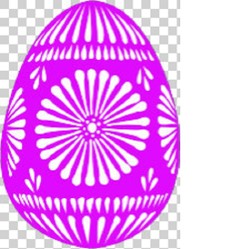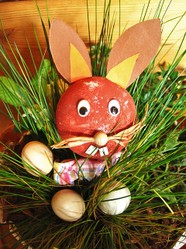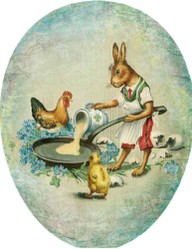Easter is the most significant day for Christians, but kids, especially the very young, have no real insight into theology. What they understand is happiness. Doing fun activities is a way of bringing out that happiness. And, in a sense, it does give them an appreciation for Easter that can develop into the proper understanding of the day later in life.
The problem is we are not all skilled at doing crafts, at least in developing the craft ideas. Nor are we all skilled at designing activities. With a little help we can handle these crafts and activities.
Working on the ideas is not difficult, and when helping children it is best to step back and allow them to take over. You might give instructions, but if it fails to meet what you expect that is fine, it is about the accomplishments of the children. Furthermore, it is a great bonding opportunity.














 Multivariable Calculus: Gradient, Divergence, and Curlon 12/19/2025
Multivariable Calculus: Gradient, Divergence, and Curlon 12/19/2025
 UAPs, Formerly UFOs, If They Are Real How Can We Explain Their Arrival to Earth?on 12/18/2025
UAPs, Formerly UFOs, If They Are Real How Can We Explain Their Arrival to Earth?on 12/18/2025
 Polar Coordinate Systemon 12/16/2025
Polar Coordinate Systemon 12/16/2025
 Aurora Can Disrupt Electrical Devices And Even the Grid?on 12/15/2025
Aurora Can Disrupt Electrical Devices And Even the Grid?on 12/15/2025



Comments
Our children are grown, but a meal is the order of the day, after Mass in the morning.
Excellent. I will try some of these with my grandchildren this Easter. TY for posting this.
Easter is a special time in our household. My mother always made a cheese and onion pie on Good Friday as it was cheaper than fish. My youngest brother and I still share this tradition with our families.
We go to church for the Triduum and at home we do an Easter egg Hunt where I hide decorated plastic eggs around the house. The grandchildren run round with little baskets to find and collect them.
Chocolate Easter eggs in Britain are HUGE sometimes up to 12 inches high and filled with chocolates.
as for traditions, I am unaware.
Real eggs are used for dying, and they are eaten. The trick is to dye only the number of eggs that can be eaten before they are no longer safe to eat.
blackspanielgallery, Thank you for the practical information and product lines. Are there traditions, what with older French and Spanish colonial influences, other than Easter bunnies, chickens and eggs in Louisiana?
What is done with the eggs, if real ones are used, after or during the celebrations?